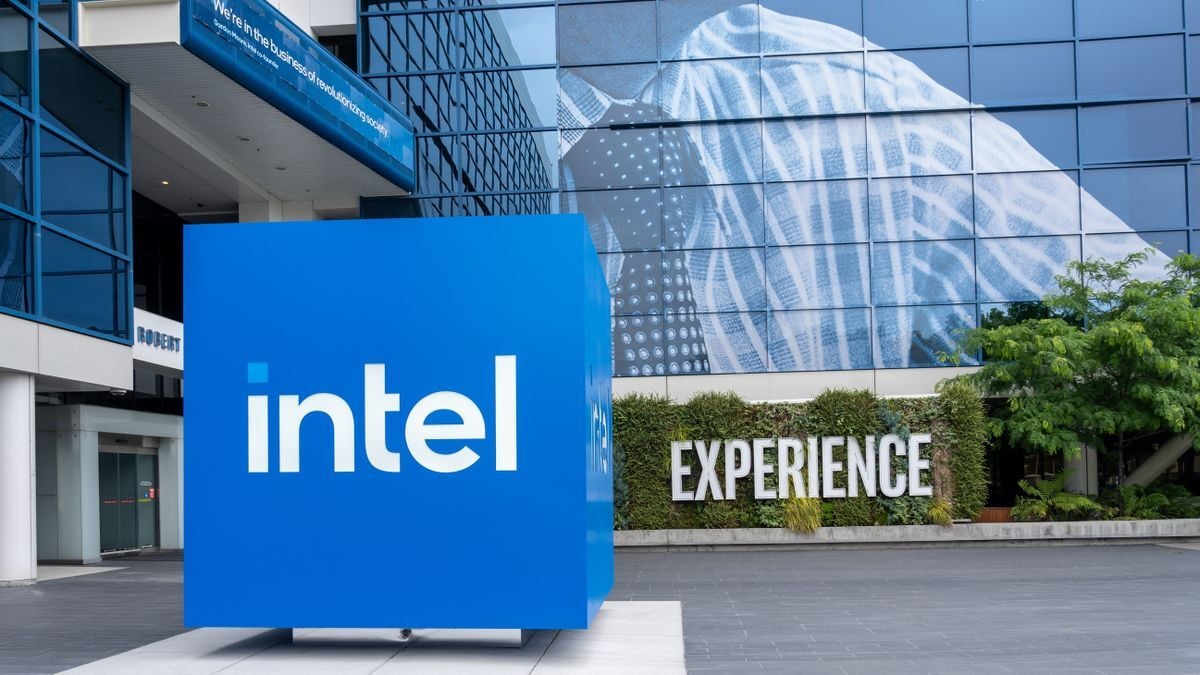Intel’s stock dropped around 30% overnight, shaving some $39 billion from the company’s market capitalization since rumors of a pending layoff first emerged. The devastating results come after the chip giant reported a loss for the second quarter, complained about yield issues with the Meteor Lake CPU, provided a modest business outlook for the next few quarters, and announced plans to lay off 15,000 people worldwide.
When the NYSE closed on July 31, Intel’s market capitalization was $130.86 billion. Then, a report about Intel’s massive layoffs was published, and the company’s market capitalization dropped sharply to $123.96 billion on August 1. Following Intel’s financial report yesterday, the company’s capitalization dropped to $91.86 billion. Essentially, Intel has lost half of its capitalization since January. As of now, Intel’s market value is a fraction of Nvidia’s worth and less than half of AMD’s.
As Intel’s actions look rather desperate, analysts believe that Intel’s challenges are existential. “Intel’s issues are now approaching the existential,” Stacy Rasgon, an analyst with Bernstein, told Reuters.



The latest AMD cpus do have transcoding, but Amd transcode isn’t very good and isn’t very compatible with Linux.
You can pick up an Intel A310 single slot GPU for $100 and it has AV1 encode, which is something that the igpu QSV doesn’t have. Works very well in my Epyc motherboard with 76 pcie lanes. I definitely recommend going with an ATX 1st gen Epyc cpu+motherboard if you want something that can do NVMe raid.
It’s compatible just fine. But the quality… well, it’s not the worst, but definitely not the best quality.
Politely, not the worst compared to what, exactly?
It’s way worse than qsv, nvenc, x264 or x265 which are basically the only hardware or cpu options you’re likely to run into doing plex transcoding.
I don’t have QSV or NVENC hardware to compare, but AMD is perfectly fine in most cases.
I mostly noticed quality drop with very busy scenes and some scene transitions.
Outside of those the quality was acceptable.
I’d say on my setup it’s comparable to software encoding with x264 veryfast preset.
And my GPU is 5 years old now, so I’m sure newer cards have improved.
QSV is a very good product, high-quality and efficient. It’s also very mature, lots of signage in large deployments. I’ve tried AMD’s AMF streaming and at lower bit-rates you get a lot more blocking. It’s fine but QSV has an edge.
https://www.pcworld.com/article/827992/tested-intel-arc-av1-video-encoder-vs-nvidia-amd.html
Lower quality at any given bitrate was my experience too. For local stuff it didn’t really matter: if I could do 3x the bitrate to get the same quality, then meh, who cares.
If you’re streaming/doing shit over the internet/encoding for something like Youtube, though, it’s uh, not a good tradeoff because you can’t necessarily even make that tradeoff.
I think AMF is still faster/better quality than CPU transcoding, depending on the preset.
That’s still an Intel product though…
It’s the best option on the market right now and the most compatible one. The drivers are owned by the Linux Foundation, and there are no known hardware bugs with Intel GPUs, unlike with Intel CPUs. You have so much flexibility; Buying an Intel GPU doesn’t prevent you from using another CPU, even GPU-less AMD Epyc CPUs that have the cheapest PCIe/$. All you need is a PCIe slot and you get all the benefits of Intel with none of the drawbacks.
I’m a bit of an AMD fanboy sometimes and I own AMD stock, but the A310 can’t be beat for Jellyfin transcoding. If you really hate Intel, keep in mind that Intel probably loses money on every GPU they sell 😉